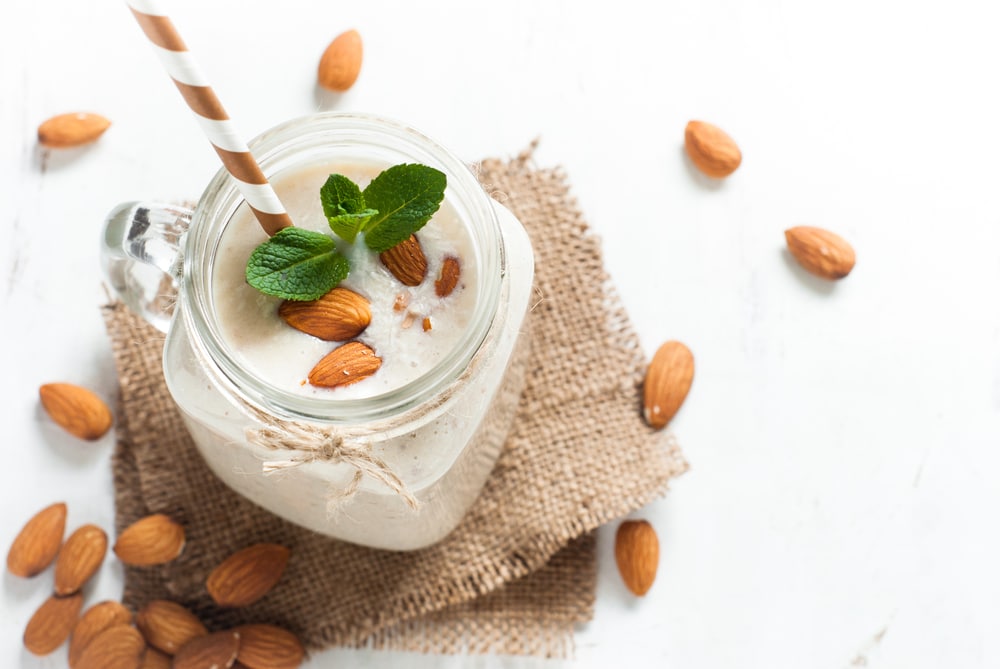Whey and Casein are two of the most popular and widely consumed milk-derived proteins in the fitness and nutrition world. They share one very …important commonality: both are complete proteins, meaning they contain all of the essential amino acids that our bodies can’t produce on their own. That said, these two proteins have distinct differences in terms of digestion rate, bioavailability, and potential health benefits. When it comes to choosing between whey vs casein, it really depends on your individual fitness goals, dietary needs, and personal preferences. Some athletes even choose to use both, leveraging the fast-acting benefits of whey post-workout and the slow-releasing benefits of casein before bed to maximize muscle growth and recovery. Here’s a rundown on what you need to know to make the decision for yourself.
Get your personalized
meal plan!
Whey Vs Casein: The Definition
Whey and Casein are both proteins derived from milk.Whey is a byproduct of cheese production. It’s considered a complete protein because it contains all nine essential amino acids necessary for human dietary needs. Whey protein is known for its quick absorption into the body, making it an ideal source of protein for after workouts (3).
Casein, on the other hand, is the main protein found in milk and dairy products, making up about 80% of its total protein content. Unlike whey, casein is digested and absorbed much more slowly (1). This slow absorption rate makes casein a great protein source for providing a steady supply of amino acids over a longer period, such as during sleep.
Which Is Better: Casein vs Whey Protein?
Neither protein is inherently “better” than the other. The choice between whey and casein largely depends on your individual goals, timing of consumption, and personal preferences.
Whey might be more suitable than casein for those looking for quick muscle recovery post-workout (3), while casein could be a better option for those needing a sustained release of protein over a longer period (1).
Many athletes choose to include both in their diet to take advantage of their unique benefits.
Digestion Speed
Whey protein is a fast-digesting protein that’s quickly absorbed into the bloodstream, making it an excellent choice for post-workout recovery (3).
On the other hand, casein digests slowly, providing a steady release of amino acids over time (1). This makes it ideal for a pre-bedtime snack or any moment when there will be a long period without food intake.
Read More: Your Guide To Post Workout Recovery Shakes And Supplements
Bioavailability
The bioavailability of a protein refers to how much of the amino acid content is actually absorbed and utilized by the body upon consumption. Both whey and casein are highly bioavailable protein sources.
Muscle Building
Whey protein has a higher leucine content, an amino acid crucial for muscle protein synthesis. This makes it potentially more effective at promoting muscle growth than casein, although it isn’t known if it makes a difference with muscle growth over the long term (3)
However, casein’s slow-release properties might help prevent muscle breakdown over time, which is also beneficial for muscle building.
Satiety
Casein tends to be more filling than whey due to its slow digestion rate (1). This can be beneficial for those looking to lose weight or maintain a calorie deficit as it can help manage hunger and appetite.
Versatility
Whey protein is typically more versatile in terms of usage. It mixes easily with liquids and can be added to a variety of recipes. Casein, on the other hand, is thicker and creamier, making it less versatile but great for specific uses like protein puddings or overnight oats.
Health Benefits
Both whey and casein offer a range of health benefits. Studies have shown that both proteins can help to boost muscle growth, increase satiety, and improve protein intake. Increasing protein intake can help improve immune functions, and lower blood glucose levels if the protein replaces carbohydrates.
Lean and toned up body isn’t just a far-fetched fantasy. Check out the BetterMe app and watch it propel your weight loss journey into high gear!
So, Which Protein Should You Choose?
When it comes to whey vs. casein, the choice really depends on your individual needs and goals. Use the guidelines before to make a decision:
Purpose 1: Muscle Building
For muscle building, whey is often considered superior due to its higher content of leucine, an amino acid that aids in muscle growth (3). It’s also quickly absorbed into the body, which can help kickstart muscle recovery and growth after a workout.
Purpose 2: Prolonged Protein Supply
Casein is best for providing a prolonged supply of protein. It’s slowly digested and absorbed, leading to a steady release of amino acids over several hours (1). This makes casein an excellent choice for maintaining muscle protein synthesis over extended periods, such as overnight during sleep.
Purpose 3: Post-Workout Recovery
Post-workout recovery benefits from whey protein because of its rapid absorption. Consuming whey protein immediately after a workout can help replenish the body’s amino acid stores, promote muscle repair, and stimulate muscle growth (3).
Purpose 4: Weight Management
Both whey and casein can support weight management. However, casein’s slow digestion rate can help you feel satisfied longer (1), potentially aiding in appetite control and weight loss efforts.
Purpose 5: Meal Replacement
As part of a meal replacement, casein might be the better option due to its slow-release properties (1). It keeps you satiated for longer periods, making it a good option for those trying to manage their calorie intake. That doesn’t mean that whey protein can’t be used in a meal replacement, though.
Read More: How To Increase Your Calorie Intake To Gain Weight
Purpose 6: Pre-Bedtime Snack
Casein is often recommended as a pre-bedtime snack. Its slow digestion ensures a steady supply of amino acids throughout the night (1), supporting muscle recovery and growth during sleep.
Purpose 7: Dietary Preferences
Whey protein tends to mix and taste better than casein, making it a more enjoyable supplement for some people. However, personal preference plays a significant role here.
Purpose 8: Cost Considerations
Generally, whey protein is less expensive than casein. If cost is a significant factor, whey might be the more economical choice. However, the decision should also take into account your specific goals and needs.
Do I Need Both Whey and Casein?
Whether you need both whey and casein largely depends on your individual nutritional needs and fitness goals. If your goal is to build muscle, consuming whey protein post-workout can help stimulate muscle protein synthesis due to its fast absorption rate.
Casein protein, because of its slow digestion rate, can help prevent muscle breakdown over longer periods of fasting, such as overnight. That said, using both can potentially optimize muscle growth and recovery. However, there is nothing wrong with using only one or the other.
Note that adequate protein intake can also be achieved through a balanced diet rich in high-quality protein sources. Supplements like whey and casein should not replace whole foods but can be used to supplement your dietary protein intake if needed.
If you struggle to even flirt with the idea of giving up your favorite foods or working out till your legs give way – BetterMe app is here to breathe a fresh perspective into the way you view the weight loss process! Check out the app and experience the fun side of fitness and dieting with BetterMe!
How To Use Whey and Casein Protein
Whey protein can be consumed anytime throughout the day, usually mixed with a liquid. It can also be added to smoothies, pancake batter, oatmeal, yogurt, etc. for extra protein.
Casein protein is best enjoyed in between meals or before bedtime as it will slowly digest and release amino acids over a longer period. It’s often consumed as a shake but can also be added to recipes like overnight oats or protein-rich puddings.
Frequently Asked Questions
What Is the Downside of Casein?
Casein, while beneficial in many ways, has a few potential downsides. It can cause digestive issues in some people, such as bloating and abdominal discomfort, due to its slow digestion rate.
Both casein and whey may trigger an allergic response in those who are sensitive to milk proteins, leading to symptoms like wheezing, coughing, itchy skin, hives, and swelling of the face and throat.
Additionally, Casein is also known to be less palatable and harder to mix than other protein supplements.
Why Is Whey More Popular Than Casein?
Whey is often more popular than casein due to several reasons. First, it’s absorbed faster by the body, making it ideal for post-workout recovery when the body needs immediate protein.
Second, whey generally tastes better and mixes more easily with liquids than casein, making it a more user-friendly option. Finally, whey is typically less expensive than casein, making it a more budget-friendly choice for many consumers.
What Is the Fastest Absorbing Protein?
Whey protein is generally considered the fastest absorbing protein. Its absorption rate is attributed to its solubility and smaller chain amino acids, which allows it to quickly reach the muscles and initiate the recovery and rebuilding process.
This is particularly beneficial during the post-workout period when the body requires immediate protein for muscle repair and growth.
The Bottom Line
Ultimately, choosing between whey vs casein depends on your individual goals, timing of consumption, dietary needs, and personal preferences. Some athletes choose to include both whey and casein in their diet for a more balanced approach to muscle growth and recovery.
However, adequate protein intake can also be achieved through a healthy diet that includes a variety of high-quality protein sources. Supplements should not replace whole foods but can be used to supplement your dietary protein intake if needed.
DISCLAIMER:
This article is intended for general informational purposes only and does not serve to address individual circumstances. It is not a substitute for professional advice or help and should not be relied on for making any kind of decision-making. Any action taken as a direct or indirect result of the information in this article is entirely at your own risk and is your sole responsibility.
BetterMe, its content staff, and its medical advisors accept no responsibility for inaccuracies, errors, misstatements, inconsistencies, or omissions and specifically disclaim any liability, loss or risk, personal, professional or otherwise, which may be incurred as a consequence, directly or indirectly, of the use and/or application of any content.
You should always seek the advice of your physician or other qualified health provider with any questions you may have regarding a medical condition or your specific situation. Never disregard professional medical advice or delay seeking it because of BetterMe content. If you suspect or think you may have a medical emergency, call your doctor.
SOURCES:
- Casein Protein (2015,peacehealth.org)
- Protein digestion and absorption: the influence of food processing (2022,cambridge.org)
- Whey Protein (2021,medlineplus.gov)











